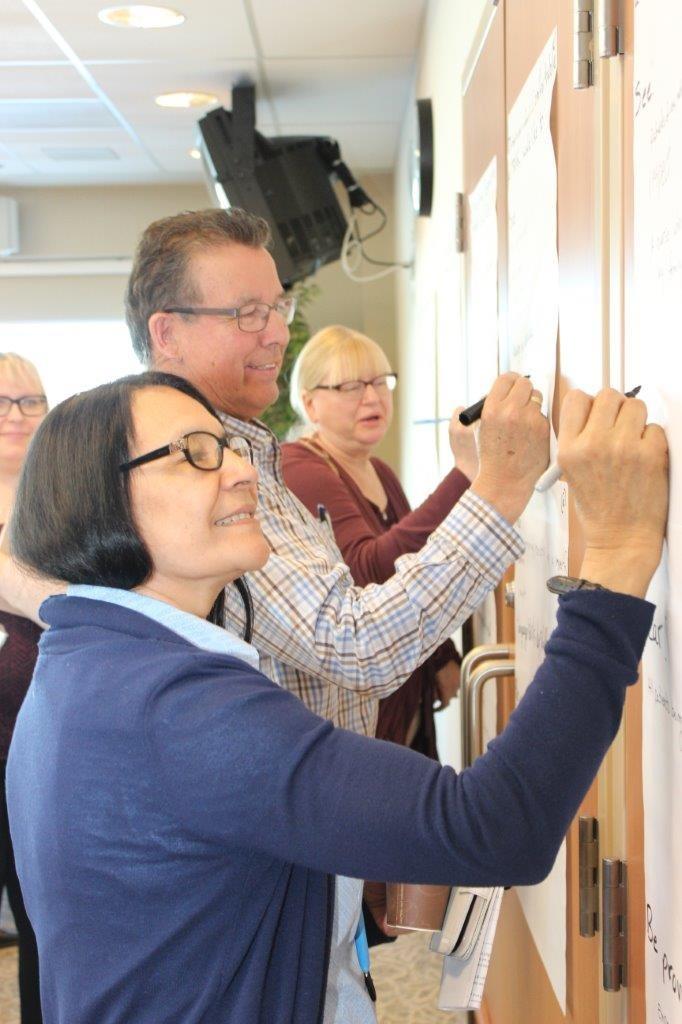Shaping Indigenous Health Through Engagement
by Maryanne Matthews
 Members of the Indigenous Advisory Committee share their knowledge and experiences to help improve Indigenous Health initiatives at the Thunder Bay Regional Health Sciences Centre.
Members of the Indigenous Advisory Committee share their knowledge and experiences to help improve Indigenous Health initiatives at the Thunder Bay Regional Health Sciences Centre.Indigenous people account for at least 19% of our population. Unfortunately, they are the least healthy people in our region. Those from remote northern communities, in particular, face unique geographical, language and cultural barriers to accessing health care.
We know this impacts overall health status, and have made Indigenous Health a priority for the next five years. We are committed to providing care that improves self-management, access, experience, and a safe transition home for Indigenous patients.
To improve experiences and outcomes for Indigenous patients, it is critical that Indigenous health activities are focused and impactful. The Indigenous Advisory Committee helps guide our actions and decisions.
“Access to quality health care is so important, especially for Indigenous people since we suffer from higher rates of chronic disease than non-Indigenous people,” says Robert Fenton, a representative of Ontario Native Women’s Association on the Indigenous Advisory Committee. “It’s encouraging to have a Health Sciences Centre that is committed to understanding our unique challenges and circumstances with regards to health care and I welcome the opportunity to share my knowledge and experiences in the pursuit of solutions.”
The Indigenous Advisory Committee is comprised of external representatives from organizations such as Nishnawbe Aski Nation, Matawa, Ontario Native Women’s Association, and Dilico Anishinabek Family Care, as well as community members. Experienced and dedicated committee members provide input on how to develop activities, and help monitor progress of the goals identified in our Strategic Plan as they relate to Indigenous Health.
“The Indigenous Advisory Committee is invaluable in terms of shaping and monitoring our progress in Indigenous Health,” said Tracie Smith, Senior Director, Communications, Indigenous Affairs and Engagement. “Their input ensures we are considering and addressing the unique needs of Indigenous patients and families, so that we can implement services and supports that are relevant.”
The Indigenous Advisory Committee has provided meaningful input on activities identified in the Strategic Plan 2020, including culturally sensitive ways to improve opportunistic screening for Indigenous patients, as well as approaches to recruit and support Indigenous volunteers. They have also provided recommendations to enhance a welcoming environment for Indigenous patients and families accessing care at our Health Sciences Centre.